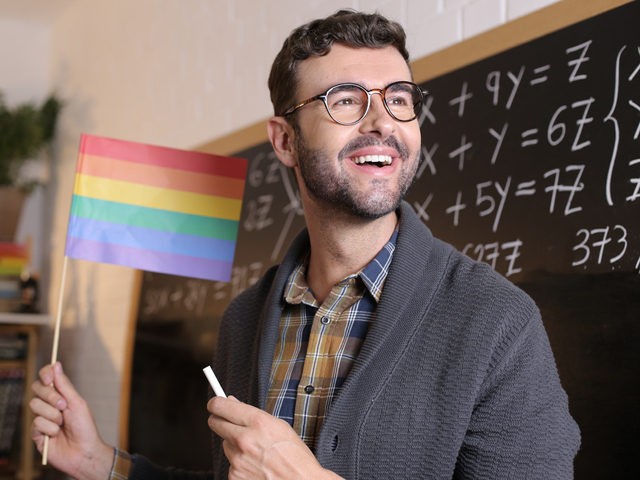A majority of Americans think it is “not appropriate” for public school teachers to talk about politics in the classroom, according to a new Grinnell College National Poll released on Wednesday.
Out of 1,004 U.S. adults polled between March 14-19 by Selzer & Company, 57 percent say it is inappropriate for public school teachers to bring their political views into their classrooms. Among parents of children in public schools, 41 percent say talking politics in the classroom is acceptable, while 58 percent disagree.
Out of seven groups poll respondents were asked about, public school teachers are the only group they say should not discuss politics. By strong majorities, Americans, say it is appropriate for lawful protesters, members of Congress, public school students, professional athletes, college professors, and clergy to talk about politics. According to the poll report:
Those opposing the teachers’ ability to speak about politics within the classroom include greater than average proportions of Republicans and Republican-leaning independents (68 percent), suburban women (65 percent), those with incomes $100K or above (63 percent) and Catholics (64 percent).
J. Ann Selzer, president of the polling firm Selzer & Company, said that views about what is happening in public schools “is the one place where suburban women align with Republicans.” She went on:
The reason we hear so many messages about what is happening in public schools may be the Republican wish to re-take the suburbs in key swing states (for example, Michigan, Wisconsin and Pennsylvania). That shift from voting for Donald Trump in 2016 to Joe Biden in 2020 hinged on a shift among suburban voters, in particular suburban women.
A majority of Americans also think librarians (57 percent), students (55 percent), and families of students (53 percent) should play a “big role in deciding about library materials,” according to the survey report. Forty-four percent say a local elected school board should play a “big part” and 42 percent say it should play a “small part.” Americans are less interested in elected officials on a state level controlling decisions about material in school libraries, with 17 percent saying they should play a “big part,” 39 percent saying they should play a “small part,” and 43 percent saying they should play “no part.”
“We find that Americans want decisions about materials in school libraries to be made locally by school librarians, families, school boards, and students themselves,” said Peter Hanson, director of the Grinnell College National Poll and associate professor of political science. “There is very little appetite among our respondents for state officials playing a big part in decisions about school libraries.”
When it comes to parental notification about “changes in gender identity,” a majority of Americans say it is “very important (43 percent) or “somewhat important (23 percent), and 31 percent say it is “not important.”
“There are significant differences in views by party identification: 71 percent of Republicans say it is ‘very important’ for schools to inform parents, compared to 37 percent of independents and 25 percent of Democrats,” the survey found.
However, the survey found that 53 percent of respondents opposed legislation that would ban “gender-affirming care” for children under 18 with the approval of their parents or guardians and their doctors. Those most likely to oppose are Democrats (78 percent).

COMMENTS
Please let us know if you're having issues with commenting.